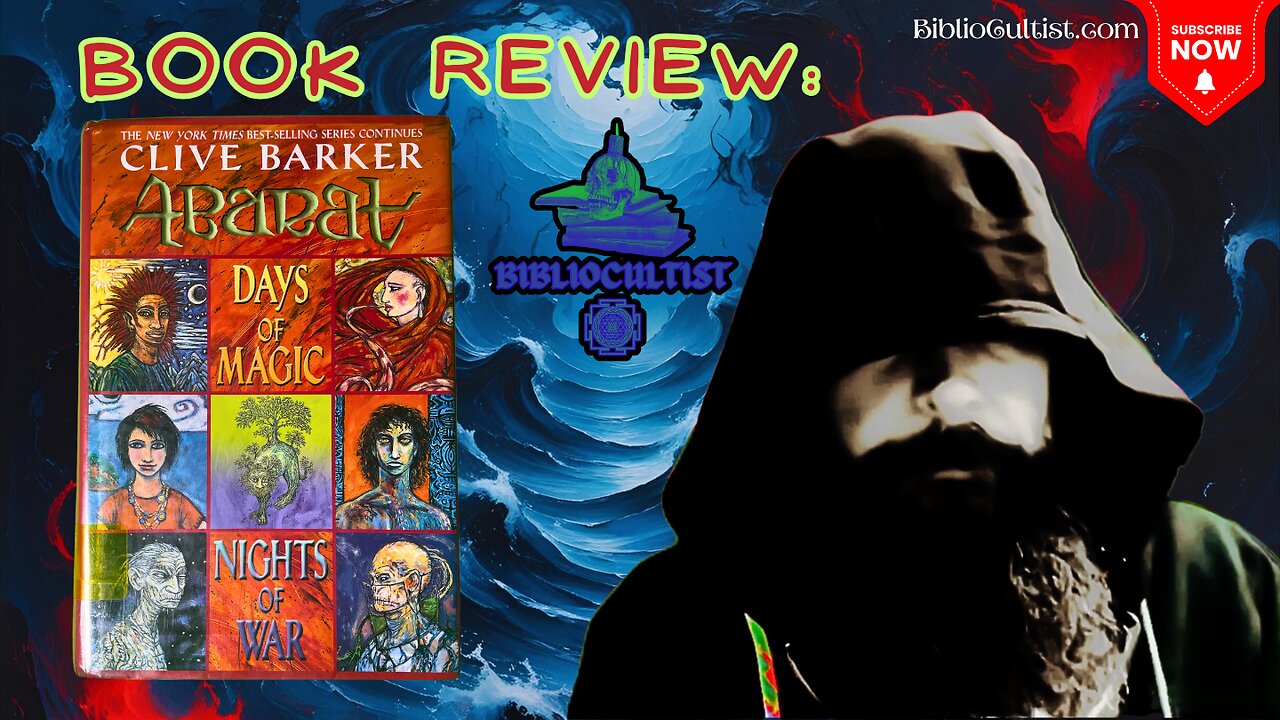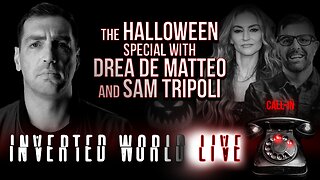Premium Only Content

Abarat Book 2: Nightmares, Time Gods, and the Sea of Izabella
*CHECK OUT MY MERCH: https://bibliocultist.printful.me/*
In this video, I review 'Abarat: Days of Magic, Nights of War' by Clive Barker, the darker sequel in his children's fantasy series. This portal fantasy delves deeper into character development and theological themes, with biblical references and connections to Christianity and Norse mythology. I discuss the book's exploration of good vs. evil and praise Barker's stunning illustrations. While the world-building takes a backseat, the focus on characters and theology creates a compelling narrative.
*all music and content copyright BiblioCultist.com*
#booktube #books #CliveBarker #Abarat #PortalFantasy #ChildrensLiterature #GoodvsEvil #Mythology #BookReview #Fantasy #biblio #cultist
**SHOW NOTES**
1. The Norns—Urðr (Past), Verðandi (Present), and Skuld (Future)—are the Norse goddesses of fate who weave the threads of destiny at the Well of Urðr (Wyrd) beneath Yggdrasil. Their names embody time’s flow: Urðr ("that which has become"), Verðandi ("that which is becoming"), and Skuld ("that which shall be"). The Old English word "wyrd" (meaning "fate" or "destiny") evolved into "weird," originally denoting cosmic inevitability (as in Shakespeare’s "weird sisters" in Macbeth), later diluted to mean "strange." This shift reflects modernity’s disconnect from the ancient view of fate as an active, woven force—not random chance, but a tapestry the Norns ceaselessly spin, cut, and knot.
2. Several Church Fathers, including Justin Martyr and Tertullian, speculated that demons originated from the sexual union between fallen angels (Genesis 6:1–4) and human women, birthing the monstrous Nephilim—a corrupt lineage purged by the Flood. Others, like Augustine, rejected this but saw demons as angels who fell with Lucifer, their malice crystallizing in rebellion. Intriguingly, these theories echo the grotesque metaphor in Clive Barker’s Abarat, where Adam and Eve’s vomited seeds spawn monsters: both traditions frame the Fall’s corruption as physically generative. For the Fathers, demonic evil wasn’t abstract but embodied—whether in Nephilim bones or the "seed" of forbidden knowledge festering in creation.
3. Clive Barker’s Abarat series—a phantasmagoric epic meant to span five books—remains tantalizingly unfinished, with only three volumes published (Abarat, Days of Magic, Nights of War, and Absolute Midnight) since 2002. Despite Barker’s ambitious plans (including titles like The Eternal and Zahir’s Conquest teased in interviews), progress has stalled due to his health struggles and shifting creative priorities. Fans cling to his vivid concept art and cryptic updates. The delay mirrors the series’ own themes: like Candy Quackenbush trapped between islands of frozen time, the saga lingers in potentiality—a masterpiece-in-waiting, as enigmatic and fertile as the Sea of Izabella itself. Barker’s 2012 Kickstarter for Abarat Book 4 raised hopes (and funds), but the project remains in limbo, a testament to art’s battle against mortal constraints.
-
 38:32
38:32
Code Blue Cam
1 day agoHow Police Stopped a Potential Church Massacre...
26.4K7 -
 24:26
24:26
Actual Justice Warrior
1 day agoWelfare Queens RAGE OUT Over Food Stamp Cuts
8.03K29 -
 3:05:11
3:05:11
Inverted World Live
9 hours agoThe Halloween Special with Drea De Matteo and Sam Tripoli | Ep. 133
352K14 -
 2:57:52
2:57:52
Laura Loomer
12 hours agoEP154: Naturalized US Navy Medic From GAZA Exposed For Ties To Hamas
41.8K29 -
 35:45
35:45
Stephen Gardner
15 hours ago🔴BREAKING: Election Auditor EXPOSES Democrat Election Fraud Evidence!
44.1K61 -
 15:48
15:48
Sponsored By Jesus Podcast
19 hours agoHow to Stop Being JEALOUS | When Comparison Steals Your Joy
15.7K12 -
 3:56:59
3:56:59
DLDAfterDark
9 hours ago $15.86 earnedDon't Worry - Things Will Get SO Much Worse! Sometimes It Be Like That
32K9 -
 25:41
25:41
Robbi On The Record
15 hours ago $4.37 earnedThe Billion-Dollar Lie Behind OnlyFans “Empowerment” (Her Testimony Will Shock You) | part II
20.7K15 -
 12:22
12:22
Cash Jordan
7 hours ago"CHICAGO MOB" Fights Back... "ZERO MERCY" Marines DEFY Judge, SMASH ILLEGALS
39.6K51 -
 46:58
46:58
Brad Owen Poker
19 hours agoI Make QUAD ACES!!! BIGGEST Bounty Of My Life! Turning $0 Into $10,000+! Must See! Poker Vlog Ep 323
24.2K7